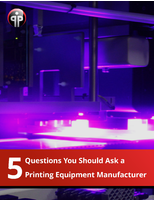Modular Conveyor System Expedites Production Changeovers For Supplier of Automotive Products
Advanced, modular conveyors integrate with other agile manufacturing systems to help manufacturers achieve zero-defect quality and gain ability to reconfigure systems, boosting ROI.
April 19, 2006 -- In the automotive world, where change is the name of the game, one of the foremost imperatives is to ensure that manufacturing changeovers can be made quickly and accurately. A quick change modular conveyor system allows manufacturers to avoid problems in the material handling arena.
One facet of the production line that can present both problems - protracted reconfiguration delays and exorbitant replacement costs - is the conveyor system. This is particularly the case with the fixed-length metal conveyor, which in recent years has lagged behind in reconfiguration flexibility and in ROI.
"Most of our projects have a three-to-four year lifespan," says Matt Barta, Manufacturing Engineering Manager at the Tucson, AZ facilities of GW Plastics, a supplier of automotive, healthcare, industrial and consumer products. "We have a lot of money invested in our automation cells, so we try to buy equipment that can be reconfigured for other applications. That includes our conveyor systems. Even though the equipment wasn't purchased for a future application, being able to reconfigure it means it won't be pushed into a corner when we retool. We can reconfigure them quickly and easily, and that gives us a much higher return on investment."
Material handling via flexible conveyor systems is of increasing importance to agile manufacturing systems is. Just as fabrication equipment becomes progressively more efficient and powerful through integration of robotics and other automated devices, many similar "intelligent" capabilities are being required of conveyor systems.
For example, at GW Plastics Tucson plant Barta has undertaken a major insert injection molding project that requires the development of customized and highly automated molding cells. Three automation cells will ultimately produce 1.7 million plastic fuel pumps annually for a global automaker, beginning with 2007 models.
The flexibility of modular conveyor systems has become increasingly critical to success on the factory floor, where the ability to quickly and easily reconfigure complex material handling systems is providing a vital competitive advantage.
The conveyor system used in Barta's project is the DynaCon® modular plastic system manufactured by Dynamic Conveyor Corporation, Muskegon, MI. This line of light- and medium-duty modular conveyors quickly adapts to product changeovers, increases or decreases in production, line conversions, and more.
"These cells are very high-tech and very automated," Barta explains. "There are numerous operations taking place to build the fuel pumps, including plastic and metal components. This requires the integration of several robotics and feeding systems. A modular conveyor system is the final piece of the automation."
The modular design of the DynaCon conveyor system can be configured in many shapes and sizes, enabling companies to standardize a system by simply snapping selected modules in place, much like Lego® building blocks. Accessories and replacement parts can be used interchangeably and modules such as S-turns, cooling tunnels, water baths, programmable box filling and variable-speed drives enables critical control of production flow for manufacturers.
Manufacturers with frequently changing production lines find that a truly modular conveyor system can not only help streamline and optimize production, but can also incorporate accessories that enhance quality and provide serviceability that increases uptime while lowering maintenance and replacement costs.
Press Contact: Jill Batka
Company Name: Dynamic Conveyor Corporation
Email: email protected from spam bots
Phone: 800 640-6850
Website: www.dynamicconveyor.com




